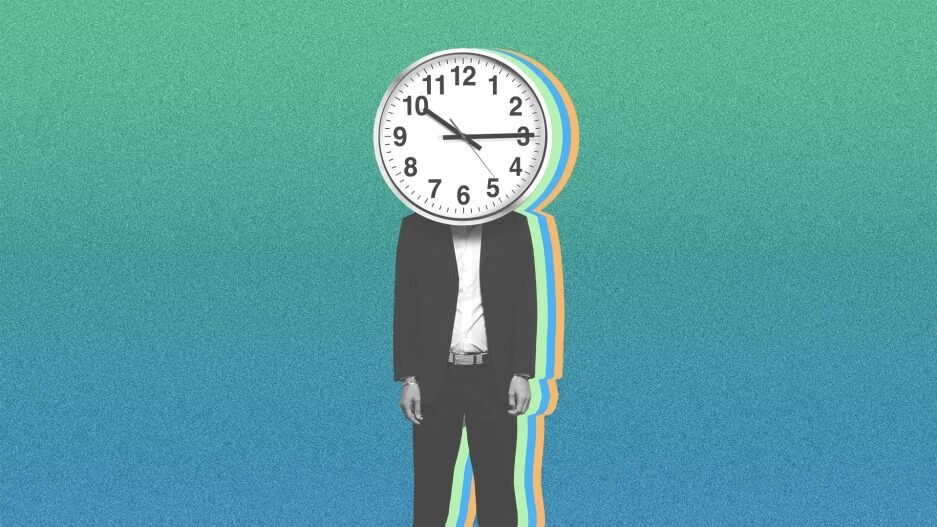- | 8:00 am
These 5-to-9 habits could be hurting your 9-to-5 productivity
The things you do outside your working hours directly affect how much you get done during the work day.

Most of us are looking for ways to simplify and streamline our workday. I’ve written countless articles on habits and hacks that can help you become more productive when you’re on the clock. But what about your off time? Turns out, what you do in the evening can have an impact on how your day runs.
“Throughout the workday, people expend high levels of cognitive resources to complete their work,” says Russell E. Johnson, a professor of management at Michigan State University’s Broad College of Business. “These cognitive resources are needed to focus attention, block out distractions, work through problems, and regulate emotions and stress.”
But the resources aren’t endless. They deplete as the day progresses, depending on how mentally challenging the work and environment is. Cognitive resources can be replenished through mental respites. While taking short breaks during the day helps, the most important time of day to recharge is in the evening after the workday had ended, says Johnson.
What you’re doing off the clock matters. These four “5-to-9” habits could be sabotaging your brain power the next day.
1. NOT DISCONNECTING FROM WORK
The most important respite activity is to fully detach from work. You may not physically be in the office, but you may still be thinking and ruminating about work, according to Johnson. “This actually prevents people from recovering cognitive resources,” he says. “Surprisingly, this happens even when people have good intentions.”
For example, you might check your calendar, send out emails, or review project notes before you go to bed. This could deplete your resources for the next morning, and your performance could suffer as a result. Instead, Johnson suggests doing non-work activities. For example, work on a strategy puzzle or play a fast-paced video game to relax after work. Even though these activities require attention and focus, they provide enjoyment and a break from work.
Other good activities include hobbies, exercise, sports, or social interactions. If you go to happy hour with coworkers, Johnson says, make sure not to delve into discussing work matters. “Otherwise, people don’t sufficiently detach,” he says.
2. NOT SEPARATING WORK AND FAMILY
With many of us working from home, the lines between the personal and professional can get blurred. Though sometimes it’s impossible to fully separate the two, there’s a downside to juggling both at the same time.
“You’ve got your laptop open and the kids running around,” says leadership coach Elliot Wise. “Massive amounts of distractions can be tremendously detrimental to your goals.”
Wise recommends creating office hours and a separate workspace if possible. Then, from 5 to 9 p.m., focus on family. “People think they are spending more time with the kids by not dividing their time, but in essence, they’re not really in the room,” says Wise. “They’re also not really working. They end up being inefficient on both fronts. Being strict and separating work and family is an important habit to have.”
3. NOT PREPLANNING FOR THE NEXT DAY
Productivity consultant and founder of CTC Productivity Jan Lehman says it’s important to plan out your three most important priorities for the next day before you end your workday.
“When you don’t do this your head will be spinning at night about the things you forgot to do, and it makes it hard to relax and have a good night’s sleep,” she says.
Lehman calls this time “regroup and plan.” “In short, stop doing,” she says. “Stop responding to emails. Instead, stop, get organized, and plan your priorities for the next day. Then leave work behind.”
If you are working remotely and you are working non-standard hours, Lehman adds that it’s important to update your Outlook calendar to indicate when your day started and ended.
“Then others can see that you have a different schedule and shouldn’t expect you to respond to non-emergency requests,” she says. “In the post-pandemic hybrid world, your calendar is an important communication tool. This also has the added benefit of reminding you that you have already put in a full day of work, and you should be wrapping up.”
4. NOT CREATING A BEDTIME ROUTINE
Instead of watching one more episode on Netflix, create a bedtime routine that starts 30 minutes before you go to bed, says Anne Grady, author of Mind Over Moment: Harness the Power of Resilience.
“Your brain is the weakest, cognitively speaking, the first 30 minutes you are awake and the last 30 minutes before you go to sleep,” she says. “Whether it’s reading a book, taking a bath, stretching, or spending time with your family, stay away from technology late in the evening to signal to your brain that it’s time to rest. This helps you to fall and stay asleep better.”
Sleep is a mental health imperative. Our brain is actively working to repair neurons damaged by stress while we sleep, adds Grady. “Good quality sleep is a skill, and it starts with a routine,” she says.
What you do after work can impact how well you perform during the day. By avoiding nighttime habits that can drain you, you set yourself up for tomorrow’s success. “Employees return to work the next day with a full tank of mental gas, which enables them to perform at their peak levels,” says Johnson.







































